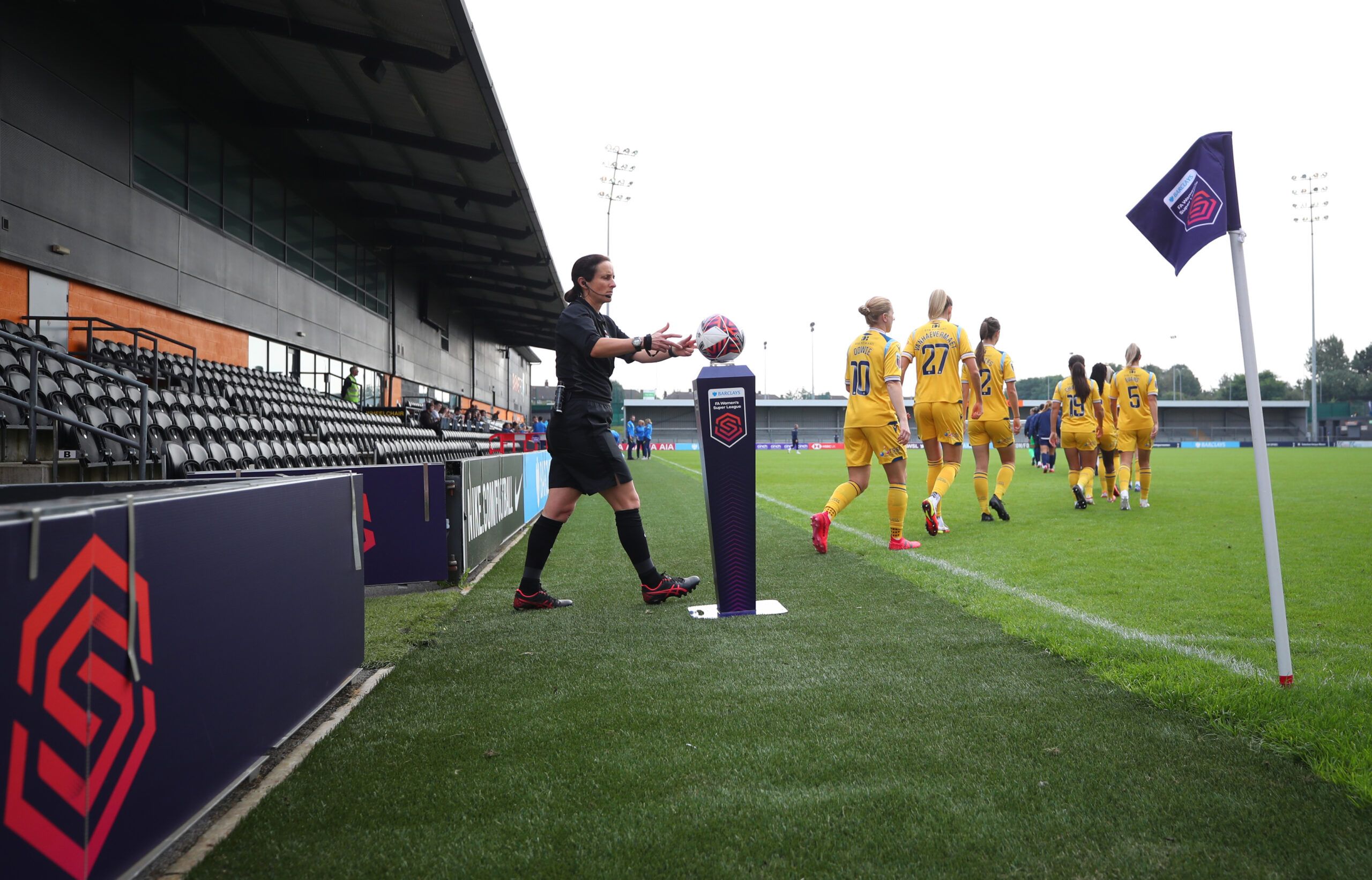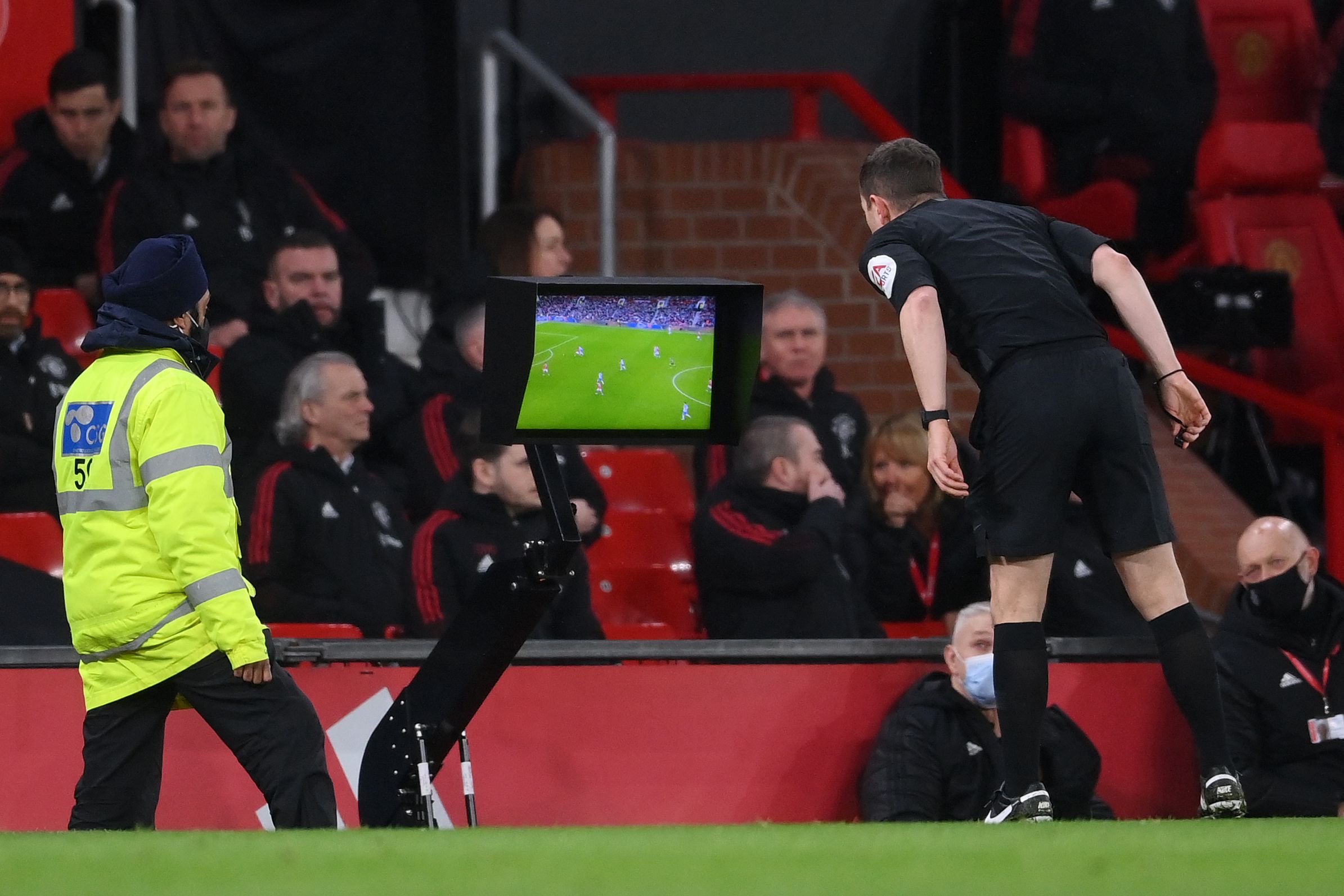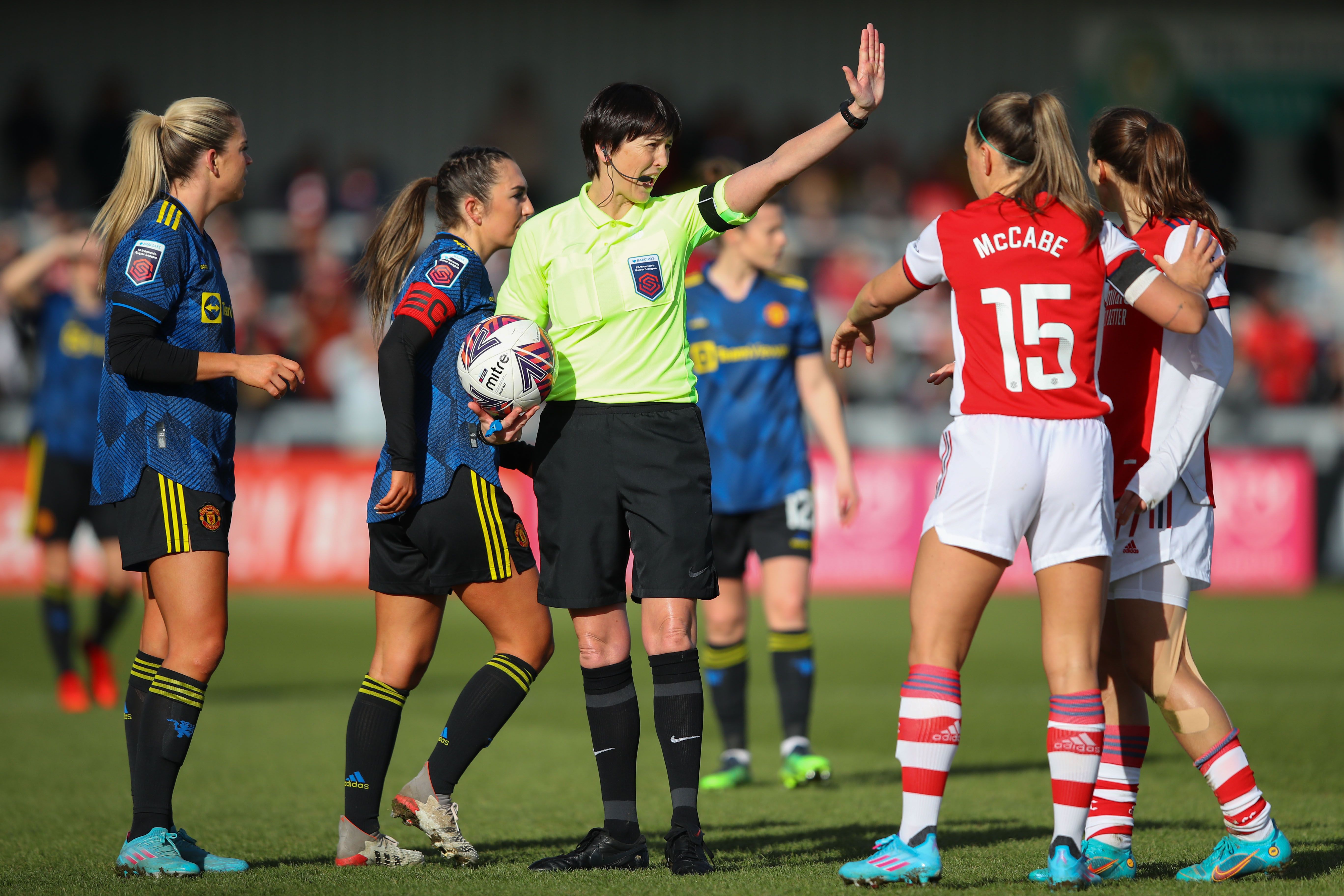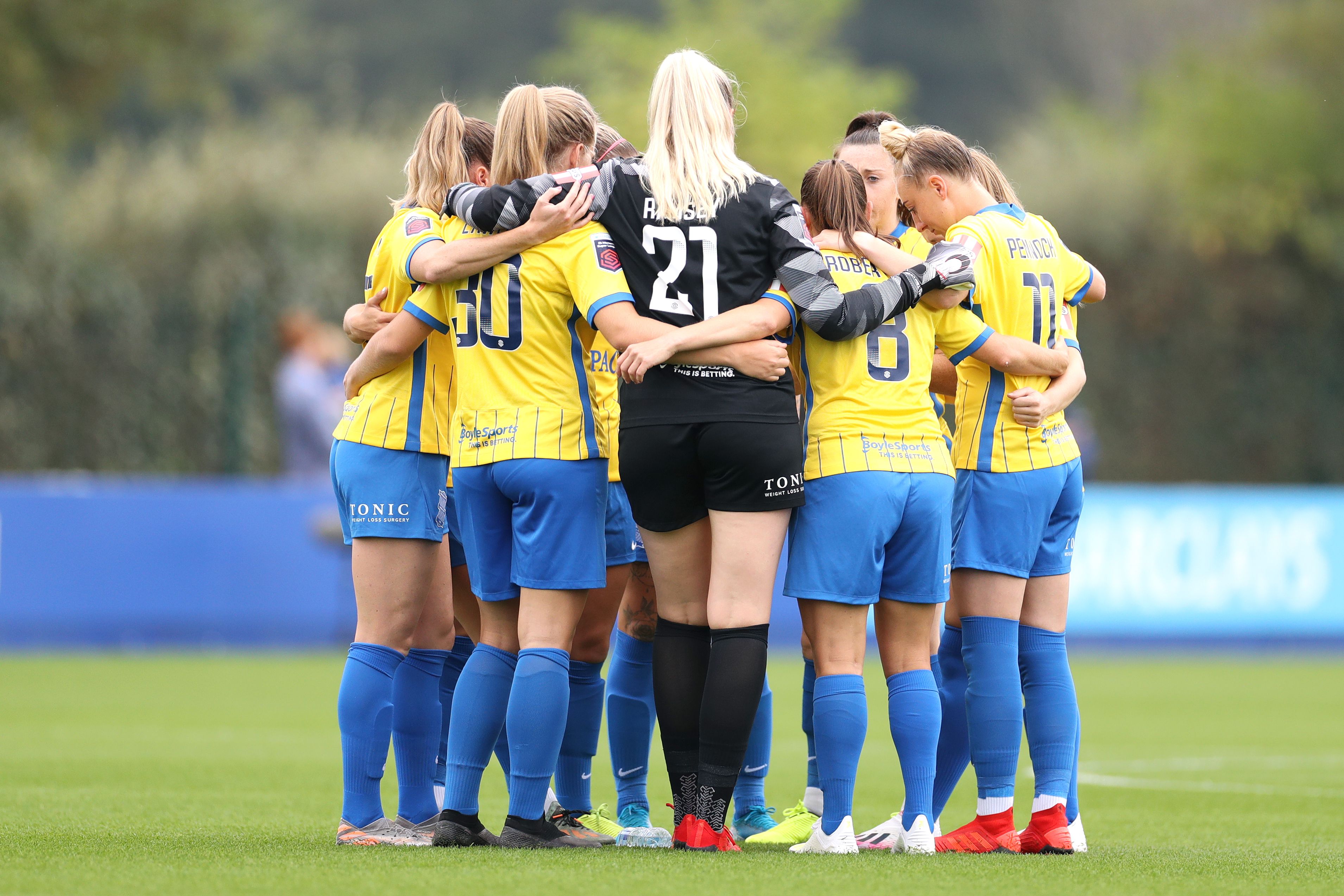The popularity of women's football has skyrocketed recently and this season of the Women's Super League has been a major talking point for a number of reasons.A lucrative new broadcast deal and a number of blockbuster signings have stolen the headlines, making this perhaps the most successful and popular campaign in the league's history.However, the positives have since taken a backseat as the standard of officiating has forced its way to centre stage. Questionable refereeing decisions are part and parcel of football. Before VAR was introduced into the men's Premier League, controversial penalty decisions rocked the sport. In fact, such decisions still make headlines even with state of the art technology. Women's football is yet to introduce goal-line technology, let alone the can of worms topic that is VAR. But in the absence of these resources, the sport is being held back as regular officiating problems stand out like a sore thumb.
Women's football behind the pack
A professional football league regarded by many as the most competitive in the world should have professional officials to match. However, the WSL is yet to implement full-time referees and the gulf in standard is becoming increasingly more noticeable.
While VAR does still have its flaws and many decisions can still go the wrong way, the overwhelming majority of professionals are pushing for it to be implemented in the women's game.
Chelsea boss Emma Hayes once said it was like those working in women's football were "second-class citizens" while the rest of the world's elite level football leagues have been making use of the new assistant refereeing technology for years now.
Watching replays of incidents on the pitch has now become a normality in the men's game but is treated as a luxury in women's matches. So far only international matches have ever featured the use of VAR.
Without this technology at domestic level and without officials receiving proper training, the growth of the sport is being hindered.
How is the standard of refereeing affecting the women's game?
This season is providing some of the most scintillating action the WSL has ever seen.
There's drama at both the top and bottom of the table as the battles for glory and survival are being played out simultaneously. Equally, the race for top three has also been blown wide open in recent weeks, with several clubs all in contention to qualify for Champions League football.
But the thrill of these battles has been dimmed as it seems some recent officiating errors are steering the direction of how the WSL table will look at the end of the season.
In the opening match of the campaign, reigning champions Chelsea faced title challengers Arsenal, who secured an important three points straight off the bat. However, the referee's failure to flag Beth Mead's offside goal ultimately decided the match as the Blues were handed their first defeat in seven months.
More incidents involving these two sides were also sign-posted by fans and professionals later down the line. In the reverse fixture, Chelsea were denied a ‘clear’ penalty after a blatant handball by Leah Williamson was not spotted by the referee
Arsenal were involved in yet another controversial match during a 1-1 draw against Manchester City. The Gunners were able to salvage a point in the dying embers of the game, but prior to the much-needed equaliser from Tobin Heath, it looked as though a bizarre defeat was on the cards.
The topic of making WSL officials full-time was once again brought up when Arsenal manager Jonas Eidevall ranted after the match.
The Swede was booked for his animated reaction to Khadija Shaw's opener, which came after the ball hit the referee. Despite rules clearly stating the ball must be ruled out of play if it touches an official, Man City profited on the poor judgement and title chasers Arsenal were left wounded.
While this hasn't done too much to impact the standings, considering the Gunners still lead the race, the same can't be said for the relegation battle.
Birmingham City fans were left distraught after their cup final-esque clash against fellow relegation candidates Leicester City. The Blues found themselves on the wrong side of a 2-1 scoreline after goalkeeper Emily Ramsey gave away a penalty and was sent off the pitch in the first half.
The decision sparked huge uproar across social media as Birmingham fans saw their hopes of survival seriously punctured.
The club was quick to appeal the red card decision after deeming it incorrect. Sure enough, the card was rescinded and Ramsey's suspension lifted but the damage had already been done. Leicester went on to take the win and put crucial daylight between them and the Blues at the foot of the table.
The gap between Birmingham — a founding member of the WSL — and their closest rivals is fearfully looking beyond repair.
The league and officials deserve better
Not only do the teams and players within the WSL deserve to have professionals taking charge of their games, but the officials themselves deserve to be put through the correct training.
While incorrect decisions make teams feel robbed of results, referees are also vulnerable to becoming targets for unfair criticism.
On paper, they are under-qualified in an elite league. Without full-time professional training, referees cannot improve on the mistakes. These issues will only continue to persist and potentially influence the final results of one of the best leagues in the world.
The growth of the WSL, and women's football as a whole, cannot fully continue without investment being applied to all areas of the game. The next major step must be to ensure full-time professional officials are being recruited or the correct training is being given to those already enrolled. Otherwise important parts of women's football will continue to trail in the shadows, which will stop the sport taking the next step.























